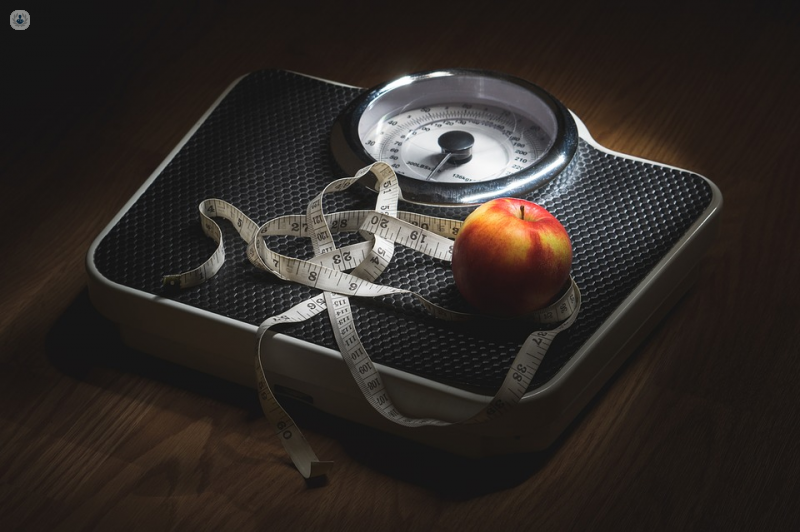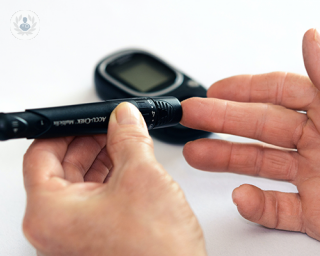Insulin resistance
Dr Sobia Arshad - Endocrinology, diabetes & metabolism
Created on: 05-28-2013
Updated on: 10-10-2023
Edited by: Kate Forristal
What is insulin resistance?
Insulin is a hormone made in the pancreas. It is released into the bloodstream when blood glucose levels rise after eating, as it aids the body’s cells in absorbing glucose from the blood and reduces glucose production in the liver, thus preventing blood sugar levels from becoming too high.
If muscle, fat and liver cells develop insulin resistance, it means they do not respond properly to the presence of insulin, and as a result, their ability to absorb glucose from the blood is decreased. A greater concentration of insulin will be needed to achieve the desired effect.
Doctors specialising in endocrinology, diabetes and metabolism are usually able to diagnose and treat insulin resistance and prediabetes.

Prognosis of insulin resistance
Insulin resistance typically causes the body to produce more insulin to compensate – a condition known as hyperinsulinaemia. Moreover, it is a driving factor behind the development of type 2 diabetes, prediabetes and gestational diabetes.
Symptoms of insulin resistance
There are usually no symptoms of insulin resistance when the condition first develops; symptoms manifest later as a knock-on effect of high blood glucose levels, including:
- Hunger
- Lethargy
- Difficulty concentrating
- High blood pressure
- High cholesterol levels
- Weight gain, particularly around the belly
Medical tests to diagnose insulin resistance
Insulin resistance can be diagnosed by testing the blood for high insulin levels. However, doctors rarely test specifically for insulin resistance, as some of the most effective tests, such as the euglycemic clamp are too expensive and complicated to be carried out in a doctor’s surgery.
It is most commonly diagnosed during blood tests for prediabetes, as prediabetes rarely occurs without insulin resistance.
What are the causes of insulin resistance?
The causes of insulin resistance are not completely understood, but several risk factors that could contribute to its development have been identified:
- Being overweight/obese
- Little physical activity
- A diet that is high in calories, sugar and/or carbohydrates
- Chronic stress
- Long-term use of steroids taken in high doses
- Certain other conditions, such as polycystic ovary disease and Cushing’s disease
Treatments for insulin resistance
To manage insulin resistance and even reverse it in some cases, you can make straightforward lifestyle changes:
Diet adjustments: Consider low-carb, low-calorie, or ketogenic diets. These help regulate blood sugar levels by reducing the need for your body to produce too much insulin.
Regular physical activity: Start with a simple 30-minute daily walk. This can improve how your body responds to insulin. You can also increase your exercise levels by going to the gym or participating in physical activities you enjoy.
Weight control: Maintaining a healthy weight is crucial. Losing excess weight, especially around your belly, can make your body more sensitive to insulin.
Medical options: In some cases, like severe obesity, weight loss surgery might be an option. These surgeries not only help with weight loss but can also improve how your body uses insulin, leading to better blood sugar control.
Remember, it's important to consult with a healthcare professional or dietitian to create a plan tailored to your specific needs when addressing insulin resistance.








